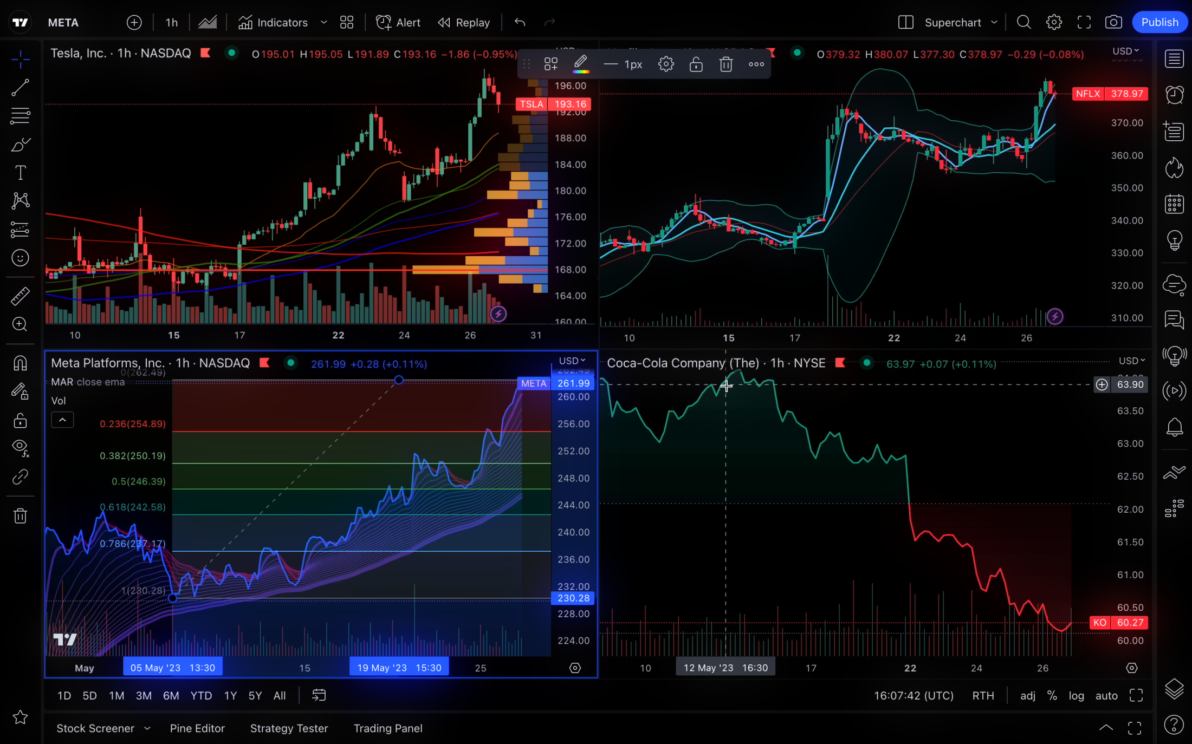How to Start Trading: A Step-by-Step Guide

How to Start Trading: A Step-by-Step Guide
Trading can be both exciting and challenging, especially for beginners. To ensure you start off on the right foot, it’s important to break the process into clear, manageable steps. Below, we dive into each step in detail, providing you with the essential knowledge and resources to begin your trading journey confidently.
Article Summary: Beginner’s Guide to Trading Steps
(Reading time: 3 minutes)
- Educate Yourself: Start by understanding financial markets, trading instruments, and risks. Use BrokerSuperMarket’s Learning Hub for beginner resources.
- Find the Right Broker: Choose a broker that aligns with your trading goals, supports demo accounts, and offers necessary tools. BrokerSuperMarket’s comparison tool aids in selection.
- Practice and Plan: Use demo accounts to test strategies, create a tailored trading plan, and stay updated on market insights through continuous learning.
1. Inform Yourself
Before diving into any market, educating yourself is key. Learn the basics of how financial markets operate, the different types of trading instruments available (such as stocks, commodities, forex, and ETFs), and the risks involved in each. Brokersupermarket offers a Learning Hub where you can find free resources, articles, and course recommendations for beginner traders.
- Explore our Beginner Trading Guide for an overview of financial markets.
- Use our Broker Ratings to find brokers that offer free educational tools and demo accounts.
2. Know Your Expectations and Resources
Setting clear expectations will help you stay grounded in your trading. Understand how much capital you’re willing to invest and what kind of returns you aim for. Keep in mind that high returns often come with higher risks, so knowing your risk tolerance is essential.
- Brokersupermarket provides a Risk Management Guide that outlines how to balance your risk/reward ratio effectively.
- You can also find detailed broker comparisons to help you choose the one that aligns with your financial goals.
3. Choose the Right Broker
Finding a broker is one of the most important steps in your trading journey. Different brokers cater to different needs—some offer better educational resources, while others specialize in low-fee trading or advanced tools. Look for brokers that offer demo accounts, low minimum deposits, and support for the assets you want to trade.
- Our Broker Comparison Tool helps you find the best broker based on your experience level and trading style.
- We also provide a list of Top Brokers with Demo Accounts to help you test the waters without risking real money.
4. Understand the Markets
Each market behaves differently. Whether you want to trade stocks, forex, commodities, or cryptocurrencies, it’s essential to understand how they work. Familiarize yourself with market trends, global events that influence prices, and how supply and demand impact value. Brokersupermarket provides regular market updates and educational content on various financial instruments.
- Read our Market Analysis section for up-to-date news and trends in different financial markets.
- Get access to expert opinions and data that can help you better understand market dynamics.
5. Test with a Demo Account
A demo account allows you to simulate trading without risking any real money. It’s a great way to test your strategies and understand the broker’s platform. By practicing in a risk-free environment, you can make mistakes and learn from them before trading with real funds.
- Check out our List of Brokers Offering Free Demo Accounts, so you can start practicing immediately.
6. Create a Strategy and Build a Portfolio
Having a trading strategy is essential for making informed decisions rather than emotional ones. Strategies vary depending on the type of asset you’re trading, but they should include entry/exit points, risk management, and diversification. Creating a balanced portfolio by trading in different markets or asset classes can reduce overall risk.
- Visit our Strategy Builder Tool, which helps you create a tailored trading plan based on your risk tolerance and financial goals.
- Learn about Portfolio Diversification and how to mitigate risk through a well-balanced asset selection.
7. Continue Learning
The best traders are those who never stop learning. Financial markets are constantly changing, and keeping up with new trends, trading strategies, and market conditions is crucial for long-term success. Make use of the educational resources, webinars, and market analysis tools that Brokersupermarket offers.
- We offer Advanced Trading Courses for those looking to take their skills to the next level.
- Subscribe to our Market Updates Newsletter to stay informed on important news, trends, and insights.
8. Be Aware of Local Tax Regulations
While trading can provide significant opportunities, it’s important to stay informed about the tax implications that come with it. Each country has its own tax rules and regulations regarding profits earned from trading, and these can vary widely depending on your location. We recommend checking with local tax experts or financial advisors to ensure you’re compliant with any tax obligations in your region.
- Note: Brokersupermarket is not a financial advisor, but we strongly encourage users to stay informed about their local tax responsibilities when trading.
- Check with a local tax advisor to ensure you’re following the appropriate guidelines.
In summary, BrokerSuperMarket offers a comprehensive guide to help users take their first steps in trading. Each step is designed to provide clarity, tools, and resources that help traders feel more confident and prepared. The focus is on making informed decisions, building a solid foundation, and leveraging smart tools and insights to navigate the markets.
February 14, 2025 05:07:00am
TradingView is a highly popular financial charting platform that caters to trade...
September 07, 2024 18:19:52pm
The energy industry remains crucial to the global economy, with traditional sect...








 en
en es
es